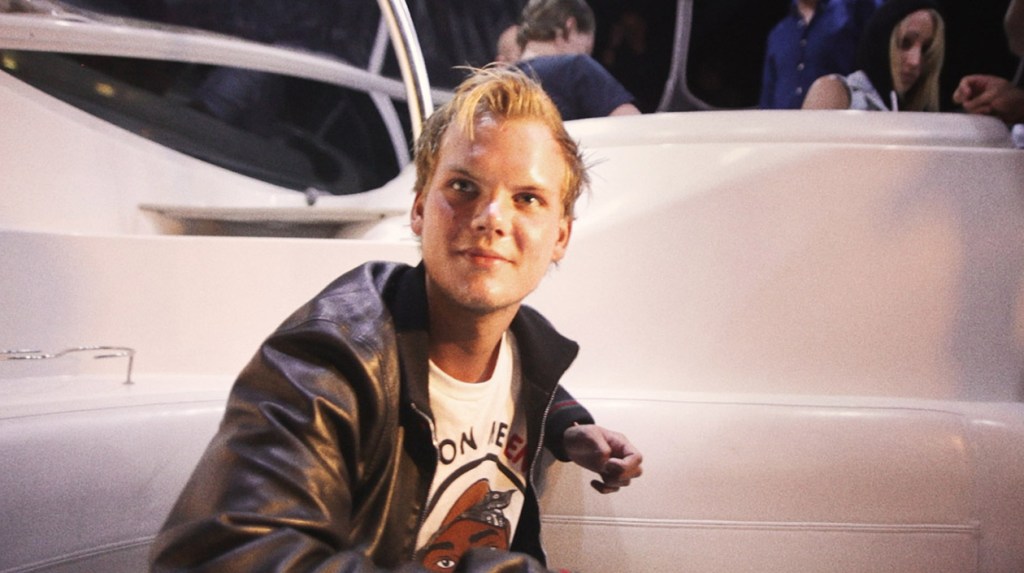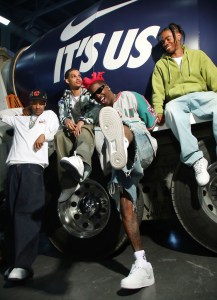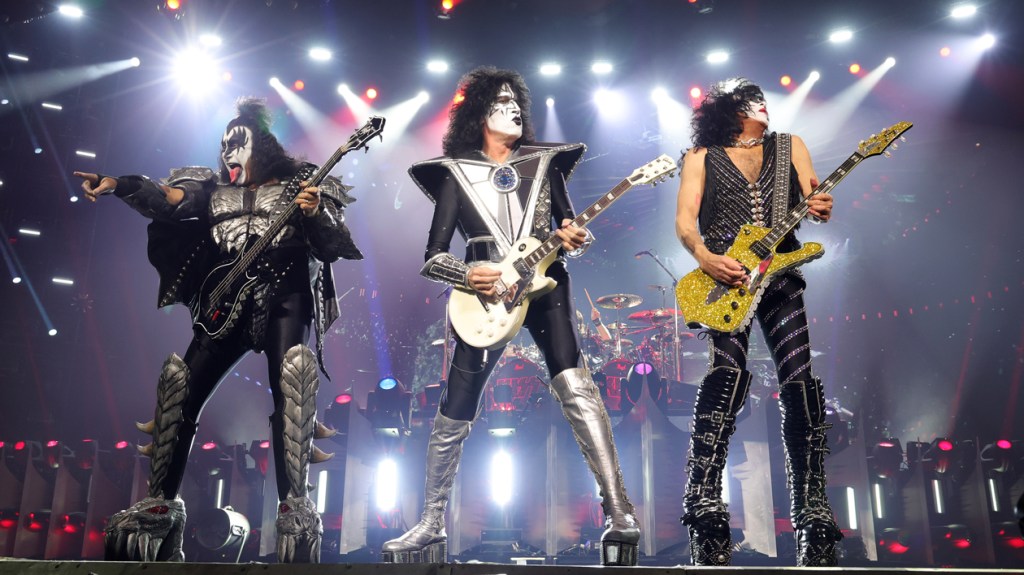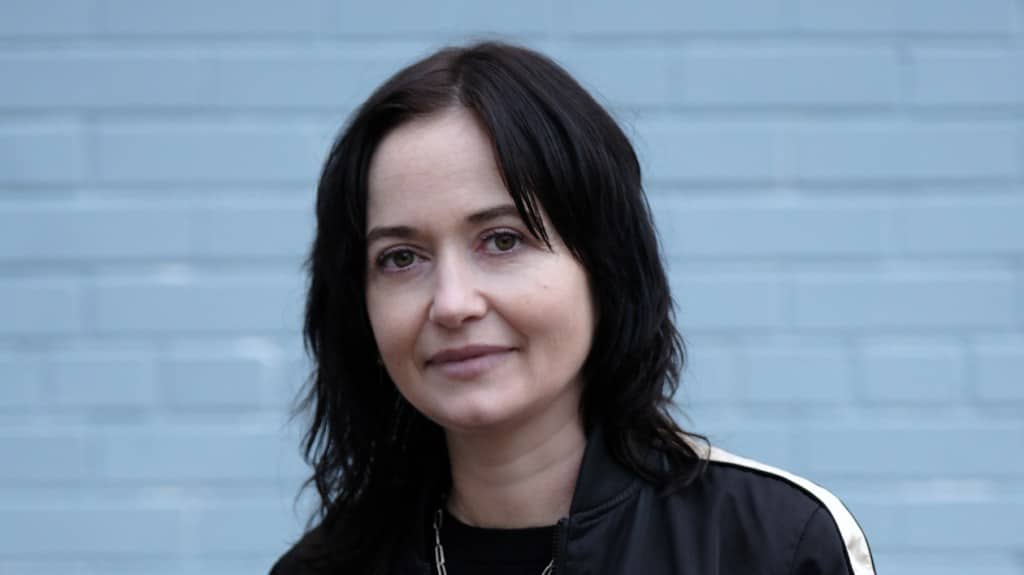Business
Page: 150
LONDON — Hit albums by Taylor Swift, The Weeknd and Sabrina Carpenter helped music sales in the United Kingdom reach a record high in 2024, exceeding the peak of the CD era in both revenue and volume for the first time, according to year-end figures from the Digital Entertainment and Retail Association (ERA).
Overall music spending in the U.K. grew to £ 2.4 billion ($3 billion) last year, a rise of 7.4% on 2023 and comfortably surpassing the previous high of £2.2 billion ($2.7 billion at today’s currency rates) back in 2001 when Dido, Robbie Williams and David Gray were topping the British album charts.
Trending on Billboard
Driving the growth was a 7.8% year-on-year rise in paid-for streaming revenues, which climbed to just over £2 billion ($2.5 billion). Vinyl sales were up 10.5% to £196 million ($245 million), while CD sales were more-or-less flat with 2023 — when revenues increased for the first time in two decades — at £126 million ($157 million). Download sales fell 3.2% to £41 million ($51 million).
The biggest selling album in the U.K. last year was Taylor’s all-conquering The Tortured Poets Department with just under 784,000 equivalent sales, including almost 112,000 vinyl purchases, which also made it 2024’s biggest-selling vinyl album.
Behind Swift in the year-end U.K. album charts was The Weeknd’s The Highlights, followed by Carpenter’s sixth studio set Short N’ Sweet. Noah Kahan’s “Stick Season” was the year’s number one single, topping the British charts for seven weeks and selling 1.9 million equivalent units, the London-based organization reported Wednesday (Jan. 8).
Streaming now makes up 88.8% of music sales in the United Kingdom, a marginal 1.1% rise on 2023’s figure and more than double streaming’s share of the U.K. market six years ago, according to labels trade body BPI, which published its preliminary year-end listening figures last week.
BPI reports that just under 200 billion music tracks were streamed in the U.K. last year, up 11% on 2023’s total, with the equivalent of 201 million albums consumed across streaming, CD and vinyl sales, a year-on-year rise of 9.7%. Streaming alone generated the equivalent of 178 million album sales in 2024, says ERA.
ERA and BPI both use Official Charts Company sales data as the basis for their reporting, although the two organizations take different approaches to measuring the vitality of the recorded music business. ERA’s figures are based on retail spending in the U.K. alongside information provided by streaming services and label trade income, whereas BPI’s analysis measures music consumption levels. Both trade groups will publish their full annual reports later in the year.
The historic low point for the U.K. music industry came in 2013 when rampant piracy and a fast-eroding physical market saw sales fall to just over £1 billion (£1.2 billion in today’s currency). Since then, sales have more than doubled.
“2024 was a banner year for music, with streaming and vinyl taking the sector to all-time-high records in both value and volume,” said ERA CEO Kim Bayley in a statement. She called last year’s retail sales figures “the stunning culmination of music’s comeback” and triumphantly declared: “We can now say definitively – music is back.”
According to ERA, combined physical sales totaled £330 million ($412 million) in the U.K. in 2024, up 6.2% on the previous 12 months, with CD and vinyl sales accounting for nearly 14% of music revenues. The benefits of such a “mixed physical-digital ecology” is key to the music’s industry’s revival, said Bayley.
“We continue to believe that digital and physical channels are complementary and vital for the health of the entertainment market overall,” she said.
Overall, revenues across the U.K. entertainment market – comprising of music, video and games retail sales – were up 2.3% on 2023’s total to a record high of £12 billion ($14.9 billion), marking the 12th consecutive year of growth and an eighth successive all-time-high.
Of the three sectors, the growth of recorded music sales outpaced both video (comprising of video-on-demand subscription services such as Netflix, Amazon Prime Video, and DVD sales) and games, but music remains the smallest of the three entertainment industries in revenue terms.
Video was the largest sector with revenues growing 6.9% year-on-year to £5 billion. Games sales totaled £4.6 billion, down 4.4% on 2023 but still nearly twice as large as the recorded music business.
ERA has been reporting on the U.K. entertainment industries since 1999 when music, video and games sales totaled £4.1 billion ($5.1 billion).
The National Independent Venue Association (NIVA) is set to collect data on the economic impact of the independent live sector with the launch of its State of Live survey, the organization announced Tuesday (Jan. 7). The initiative will seek to capture the economic contributions and operational challenges of independent venues, promoters, performing arts centers and […]
The Avicii catalog experienced a significant streaming surge following the release of a new documentary about the late artist. In the wake of the Dec. 31 release of I’m Tim on Netflix, global on-demand streams of the Swedish producer’s catalog increased by 63.9%, according to Luminate. The artist’s catalog had a total of 26.4 million […]
This is The Legal Beat, a weekly newsletter about music law from Billboard Pro, offering you a one-stop cheat sheet of big new cases, important rulings and all the fun stuff in between.
This week: A recap of all the biggest music law stories from 2024; a civil lawsuit against Nicki Minaj claiming she assaulted a tour staffer; an agreement to delay Lil Durk’s murder-for-hire trial by months; and much more.
THE BIG STORY: 2024 Music Law Recap
Before we get to 2025 (happy New Year, by the way) let’s quickly recap all of the biggest music law stories of 2024 — a collection of high-stakes legal battles for some of the industry’s biggest players.
For Live Nation and Ticketmaster, the Department of Justice’s antitrust case posed an existential threat; for Young Thug and Lil Durk, each facing criminal cases accusing them of blurring the line between artist and gangster, a life prison sentence loomed; for Michael Jackson’s estate, court approval of a massive catalog sale hung in the balance; for Miley Cyrus, allegations of infringement stalked the biggest hit of her career; and for Drake, he put his reputation on the line to go to court over Kendrick Lamar’s diss track.
Trending on Billboard
And none of that even approached the scale of the legal debacle facing Sean “Diddy” Combs. After decades as a chart-topping artist/producer and one of the industry’s most powerful men, the music mogul was hit with a flood of abuse allegations — first in the form of civil lawsuits, then in a stunning criminal indictment that could put him behind bars for life.
For more, go read our entire story on the 10 biggest music law stories of the year.
Other top stories this week…
BACKSTAGE BLOWS – Nicki Minaj was hit with a civil lawsuit over allegations that the rapper physically attacked a tour staffer named Brandon Garrett backstage at an April concert. Garrett says the rapper (Onika Maraj) hit him multiple times after flying into a rage at the Detroit stop on her 2024 Pink Friday 2 tour — an outburst that allegedly featured the star screaming: “You’re a dead man walking. You just f—ed up your whole life and you will never be anyone, I’ll make sure of it.”
DURK DELAYED – Lil Durk’s trial on federal murder-for-hire charges will be pushed back until October after both his lawyers and federal prosecutors agreed to a months-long delay. The case — over an alleged plot to kill rival rapper Quando Rondo — had been set for trial this month, but his attorneys waived his right to an immediate trial because the case is “so unusual and so complex” that they needed more time to prepare.
NAME GAME – A federal judge ruled that a woman accusing Diplo of sharing “revenge porn” must reveal her identity if she wants to proceed with the case. “Doe” pseudonyms have become common in sexual abuse complaints, and attorneys for the DJ’s accuser argued she might face blowback. But the judge was unswayed, saying court cases must usually feature real names: “Those using the courts must be prepared to accept the public scrutiny that is an inherent part of public trials.”
DISMISSAL DENIED – Danny Elfman lost a bid to end a libel lawsuit filed against him by former friend Nomi Abadi, who claims the prolific film composer defamed her when he issued a strongly-worded statement denying her accusations of sexual harassment. Elfman argued that his statement was protected by “litigation privilege” because it was issued amid threats of court action, but the judge didn’t buy it: “To allow defendant Elfman to make statements and permit their publication while hiding behind the litigation privilege would decimate the purpose of the privilege.”
KISS CASE CLOSED – Kiss members Gene Simmons and Paul Stanley reached a settlement to end a wrongful termination lawsuit accusing them of firing their longtime hairstylist, David Mathews, after he complained about “unsafe working conditions” amid the COVID-19 pandemic. The band is still facing another lawsuit filed by the family of Francis S. Stueber, a guitar tech who died in October 2021 while quarantining in a hotel room on tour.
TUPAC UPDATE – Duane Davis, the ex-gang leader facing a murder trial over the long-unsolved 1996 killing of Tupac Shakur, asked a Nevada judge to dismiss the charges against him. In doing so, he cited “egregious” constitutional violations because of the 27-year delay, a supposed lack of corroborating evidence and a failure to honor previous immunity agreements.
The numbers are in on the first edition of ComplexCon Las Vegas, the festival dedicated to convergence culture that debuted in its new home in November 2024. Sixty thousand attendees visited the shoppable exhibition featuring music, fashion, art, food, innovation and sports collaborations. Over two days, sales totaled more than $20 million, marking record numbers for the event, which began in 2016 in Long Beach, Calif.
By all accounts, Las Vegas and ComplexCon are a perfect match. The 300-plus brands have an entire cityscape to activate collaborations, exclusive drops and live performances.
By day, the hypebeasts dropped their paychecks on Takashi Murakami Ohana Hatake Full-Boom Slides, the Pac Sun x Yohji Yamamoto Wildside capsule, King Ice Pokémon-embellished jewels and Travis Scott’s Nike Zoom Field Jaxx. They snapped pics with Dan Life’s MVMT x Call of Duty: Black Ops 6 limited-edition timepiece and the ESPN SportsCenter Top 10 Chain. Cannabis brand STIIIZY popped up with a replica weed cultivation experience, and Gin & Juice by Dre and Snoop poured out their new distilled gin, Still G.I.N.
Trending on Billboard
Outside the exhibition, Gunna performed at Drai’s wearing Adidas Originals Adizero Aruku sneakers; Juice WRLD’s team held a final album listening party and celebration for the late rapper’s Fortnite Battle Royale, Chapter 2 Remix appearance at Zouk nightclub; and Jordan Brand created the Cactus Jack Outpost, an immersive experience that brought Scott’s utopian vision to life and showcased his journey in creating the CJ1 T-Rexx shoe.
Neil Wright, senior vp of experiential events at ComplexCon, attributes the success of the first Vegas outing to the expanded music component, including CactusCon, with the participation of Scott as artistic director.
“Music — even though it’s always been a pillar of ComplexCon, it has never been more prominent, with Travis having his influence over the entire show,” Wright says. “[In the past], we’ve had Pharrell, from a cultural perspective, help with the curatorial aspects, but the look, feel, and identity of each year, we’ve always tapped a fine artist. Having Travis put his arms and his creative vision around it with his team was a major co-sign to get the music industry involved.”
Scott unveiled over 35 exclusive collaborations and installations with influential designers, artists, and brands in the CactusCon bazaar. In the Cactus Colosseum by Nike, he pushed soccer, sneakers, and community, celebrating the Nike Zoom Field Jaxx launch with the Secreto Maximus Tournament, a high-stakes private soccer match at the Cactus Colosseum featuring top athletes and showcasing a trophy case of his Nike collaborations. He closed the two-day festival with a performance on ComplexCon’s Main Stage, bringing out WWE’s “Triple H” as a surprise appearance to present him with the WWE Hardcore Championship belt. Amplifying his presence to a new demographic, he announced a Jan. 6 appearance on the first RAW on Netflix.
Scott will use this “takeover” formula when he plays Coachella in April with a Cactus Jack desert domination, sharing his universe with the festival audience in the desert.
Another major boon for ComplexCon Las Vegas was Nike’s investment in music collaborations and product innovation. In addition to Scott, the sneaker giant partnered with Lil Yachty and the Concrete Boys on the Nike Us Force 1. Nike also debuted the Air Max 1000, a new 3D-printed silhouette manufactured with Zellerfeld that reimagines the Air Max 1.
“From a strictly square footage perspective, this was Nike’s biggest impact on ComplexCon. They’ve done so many things over the years that were cool at the moment but aged even better. In 2017, there was a fireside chat with Kendrick Lamar and Kobe Bryant, and they also brought Virgil Abloh to debut his collection that year.”
Dc2trill, Draft Day, Lil Yachty, and Camo! attend ComplexCon 2024 on November 17, 2024 in Las Vegas, Nevada.
Sara Jaye/Getty Images for Complex
It wasn’t that long ago—back in 2016—that Wright remembers when ComplexCon was just a concept deck that he and founders Aaron Levant and Marc Ecko were pitching Nike.
“It’s a trade show. No, it’s not a trade show. It’s a music festival. No, it’s not a music festival,” he recalls. “It was difficult to convey what we were trying to build in year one.”
Year eight signified the complete vision, activated. The exhibition featured Capitol, Interscope and Def Jam booths peddling ephemera such as Ice Spice Chia Pets, vintage Tupac T-shirts and vinyl records. A Rick Owens-designed Cactus Jack recording studio was also on display.
“You don’t want the same type of artist merch that you can get anywhere. Rather than partnering on a sneaker drop, many of our brands collaborate with recording artists such as Ed Hardy and Ken Carson, as well as Siobhan Bell and B.B. Simon,” Wright says. “Music collaborations have become just as important.”
L.A.-based high-tech footwear brand FCTRY LAb debuted at ComplexCon with their viral Duck Boots in black and yellow created in collaboration with rapper NLE Choppa.
FCTRY LAb co-founder and creative director Omar Bailey, the former Head of the Yeezy-Adidas Innovation Lab, started the company two years ago (funded by a diverse group of venture capital firms, professional athletes and angel investors).
Bailey aims to help rappers, actors, athletes, influencers or public figures design, develop and manufacture their own footwear outside the frame of major brands like Nike or Adidas. “There is a huge opportunity for artists who may not be on the big brands’ radar, who have, who have the reach, the ability and the desire to want to launch their own shoes,” he says. “We also want to create radical and interesting concepts and designs in a space that’s been quite boring for the last 10 years.”
DJ EFN, Dr. Dre, and Snoop Dogg speak onstage during ComplexCon 2024 on November 16, 2024 in Las Vegas, Nevada.
Bryan Steffy/Getty Images for Complex
According to FCTRY LAb, the formula works. The Yellow Boot was a significant unpaid, organic social media moment for the sneaker industry, accumulating 308 million views and 17 million+ instances of direct consumer engagement.
From the disruptors to the mainstream, brands such as WWE, which collaborated with Loiter; Tide, which sponsored ThriftCon; and Chips Ahoy, which partnered with Big Sean, all flocked to participate. At that convergence, things get even more interesting for Wright, with ComplexCon acting like an internal agency to help them fit in. “We work very closely with a lot of the bigger, non endemic partners to make sure that when they do show up, they’re showing up in a credible and an authentic way,” he says. “They put effort into actually speaking the language of our audience.”
Collaborating with WWE was a dream for fashion house Loiter, created by Isaac Metekingi. With a design ethos rooted in hip-hop and electronic music subcultures, Loiter, the in-house brand for Culture Kings, was inspired by the grunge-inspired graphics of WWE superstars, including Duane “The Rock” Johnson, The Undertaker, “Stone Cold” Steve Austin and “The Big Red Monster” Kane. Its booth featured the “Raw is War” entrance for photo ops.
“They were a little bit skeptical when we presented the idea—they had all their modern wrestlers. And I was like, I’m gonna go way back, and after a while, they saw the vision,” Metekingi says. “For a relatively unknown brand, we had an unbelievable presence.”
ComplexCon aims to have an even bigger year in 2025, with artist Daniel Arsham serving as the global artistic director. The event will travel to Hong Kong from March 21-23, 2025 and return to Las Vegas on Oct. 25-26, 2025.
Kiss members Gene Simmons and Paul Stanley have reached a settlement to end a wrongful termination lawsuit accusing them of firing their longtime hairstylist after he complained about “unsafe working conditions” amid the COVID-19 pandemic.
With a jury trial set to kick off later this month, attorneys for both sides told a Los Angeles judge on Monday that they had “resolved” the case, in which David Mathews claimed that he had been abruptly terminated in 2022 after serving as the band’s hairstylist for 30 years.
Terms of the agreement were not disclosed in court filings and neither side immediately returned requests for comment.
Trending on Billboard
Mathews sued the iconic rock band in 2023, alleging he had been fired in retaliation after he repeatedly raised concerns about the band’s allegedly lax approach to the pandemic. Among other allegations, he said he was forced to work in close proximity to band members like Simmons even when they were sick.
“He was coughing and blowing his nose in the dressing room while still insisting that he felt fine,” Mathews wrote of one encounter with Simmons. “Once again, Mr. Mathews was required to be in Mr. Simmons presence to perform his job duties.”
Mathews isn’t the only person to sue over Kiss over the band’s COVID-19 protocols. The band is also facing a wrongful death lawsuit from the family of Francis S. Stueber, a longtime guitar tech who died in October 2021 while quarantining in a hotel room. The suit claims that the band ignored their own safety rules and failed to arrange medical aid to Stueber after he fell ill.
In his lawsuit, Mathews included his own recounting of Stueber’s death, saying he had repeatedly warned the band and manager Doc McGhee that the man “needs to go to the hospital.” When the incident was later reported by Rolling Stone, Mathews said the band accused him of leaking information to magazine – a claim he denied.
In the wake of Stueber’s death, Mathews claimed that he had numerous run-ins with the band over health and safety, saying that he was “very concerned about the practices pertaining to COVID protocols and decisions being considered by management.” In one incident, he claimed that the band wanted to board commercial flights to South America even though he had tested positive for the coronavirus.
In May 2022, Mathews claimed, McGhee told him that the band felt he had “betrayed and been disloyal to them and they wanted to make a change.” Though he again denied serving as a source for the Rolling Stone report, he said McGhee soon informed him that he would be terminated: “After being a part of KISS for 30 years, Mr. Mathews was in a complete state of shock.”
With a trial looming, the judge overseeing the case had urged both sides to strike a deal. As reported by Rolling Stone, Judge Armen Tamzarian said at a court hearing last month that the case presented “very serious risks” to both sides if it went to a jury.
“If this goes to trial, it would not surprise me if Mr. Mathews got nothing. It would not surprise me if he made a big pot of money. This is the kind of case any rational person would settle. There’s big risk this could swing dramatically one way or the other,” the judge reportedly said at the time.
As Discogs marches towards its 25th anniversary later this year, the music discovery platform has announced new milestones in collection trends among its physical music-loving users.
According to fresh figures released Tuesday (Jan. 7), Discogs members cataloged over 105.7 million pieces of music in 2024 — an average of 2 million vinyl albums, CDs, tapes, 8-tracks and any other catalogable format you can think of per week.
Since its inception, more than 830 million items have been cataloged, with average collections — which are predominantly vinyl — hovering around 195 items per user, the company said. Collectors made sure to log a lot of copies of Taylor Swift’s The Tortured Poets Department, the year’s most collected album at more than 130,000, followed by releases from Charli XCX and Billie Eilish. The most collected artist of all time continues to be four lads from Liverpool and the most collected master is Pink Floyd’s The Dark Side of the Moon. The most collected individual release is the original 180-gram version of Daft Punk’s Random Access Memories, from 2013. (Incidentally, the label that released RAM — Columbia — is the most collected imprint out there.)
Jeffrey Smith, Discogs’ vice president of marketing, emphasized the significance of reaching 105.7 million records cataloged in a single year, noting that each record represents a “deliberate choice” by a real person to “hold, own, and listen to music with intention.”
Trending on Billboard
“Discogs continues to exist because people care deeply about music as something tangible and meaningful,” Smith added. “This collection milestone reflects a global community driven deeply by passion, connection, and an unwavering commitment to the music that shapes their lives.”
Discogs’ other function, as a viable place to buy and sell those physical music collections, is also hoping to hit a milestone this year. In early 2024, the company told Billboard that it wants to boost its online database to 25 million marketplace listings by its 25th anniversary in November 2025.
Here are some stats on Discogs’ collections:
Average collection size: 195 items
Average collection value: $317
Most collected album ever: The Dark Side of the Moon, Pink Floyd
Most collected albums of 2024:The Tortured Poets Department, Taylor Swift (130,000-plus)Brat, Charli XCX (40,000-plus)Hit Me Hard And Soft, Billie Eilish (40,000-plus)Short N’ Sweet, Sabrina Carpenter (30,000)Songs Of A Lost World, The Cure (27,000)
Most collected record ever: Original 180-gram vinyl of Daft Punk’s Random Access Memories
Record label with the most items in collection: Columbia
Most collected formats:1. Vinyl2. CDs4. Cassettes
Kobalt has tapped Rani Hancock to be its new executive vp/head of U.S. creative. In the role, Hancock will lead the company’s creative teams in New York, Los Angeles and Nashville, and she will report to Kobalt’s president/chief commercial officer Jeannette Perez. This marks Hancock’s first foray into publishing after spending her career as a […]
An ex-gang leader is seeking to have all the charges against him dismissed in the 1990s killing of rap music icon Tupac Shakur. Attorney Carl Arnold filed the motion on Monday in the District Court of Nevada to dismiss charges against Duane Davis in the 1996 shooting of Shakur. The motion alleges “egregious” constitutional violations because […]
Vivid Seats, an online ticket resale marketplace that went public through a SPAC merger in 2021, is reportedly fielding acquisition offers from several equity firms hoping to take the company private, according to a recent report in Bloomberg. Company officials have brought on an advisory firm to help gauge interest in a potential sale, according […]

 State Champ Radio
State Champ Radio 










